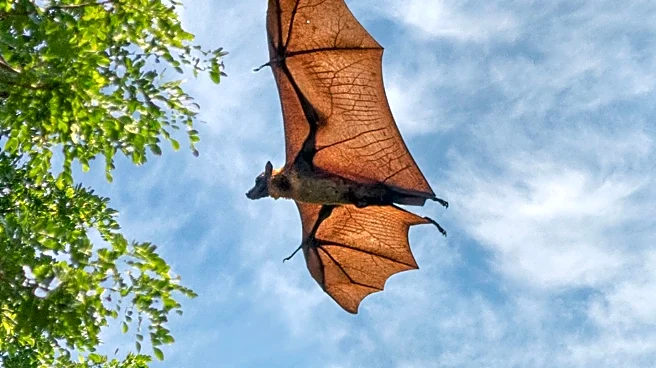What's Happening?
Raisin, a Jamaican fruit bat, has been living at Bat World Sanctuary since 2005 after being retired from a research facility. The sanctuary provides a nurturing environment for Raisin and other geriatric bats, offering them quality care and a chance to live out their lives in comfort. Raisin, now 20 years old, receives regular vet checkups, arthritis medication, and jojoba oil massages to maintain her health and comfort. Despite her age, Raisin remains social and active, enjoying treats and rest time in her specially designed enclosure.
Why It's Important?
The story of Raisin highlights the importance of providing retired lab animals with a safe and caring environment. Bat World Sanctuary's efforts demonstrate how quality care can significantly extend the lives of animals beyond their expected lifespan in the wild. This case underscores the ethical considerations in animal research and the responsibility to ensure humane treatment and retirement for lab animals. The sanctuary's work also raises awareness about the conditions faced by animals in research facilities and the potential for rehabilitation and socialization in a supportive setting.
What's Next?
Bat World Sanctuary continues to advocate for the retirement of lab animals, offering them a chance to live in a natural and stress-free environment. The sanctuary's ongoing efforts may inspire other facilities to consider similar retirement options for their animals. As awareness grows, there could be increased support for sanctuaries and policies that promote ethical treatment and retirement of lab animals.
Beyond the Headlines
The sanctuary's approach to animal care reflects broader ethical and cultural shifts towards more humane treatment of animals in research. It challenges traditional practices and encourages a reevaluation of how animals are used and cared for in scientific settings. This development may influence future regulations and standards in animal research, promoting more compassionate and responsible practices.










